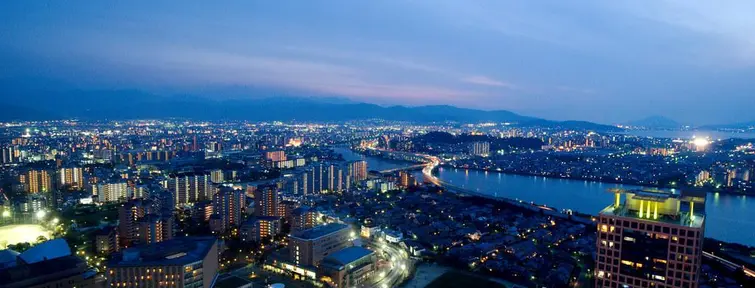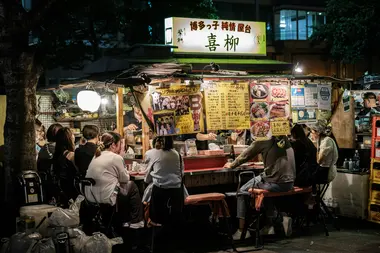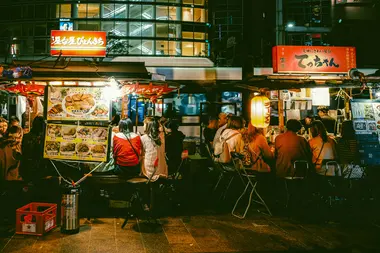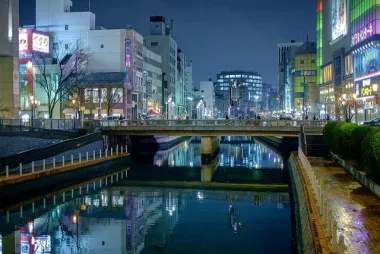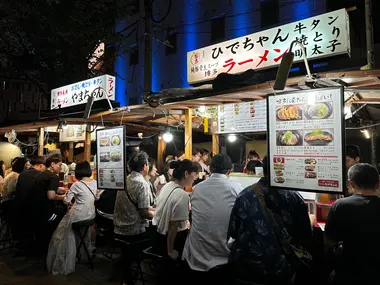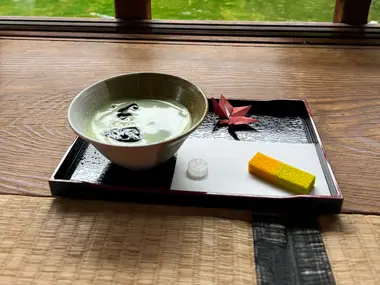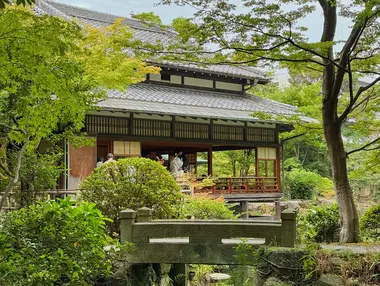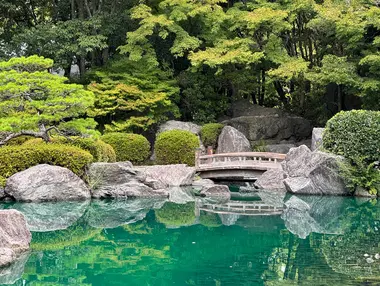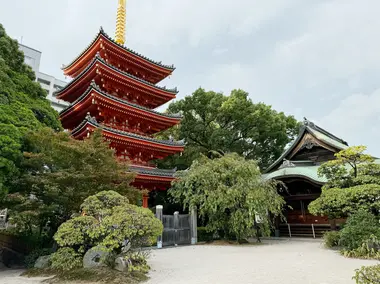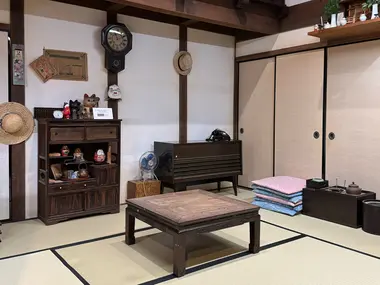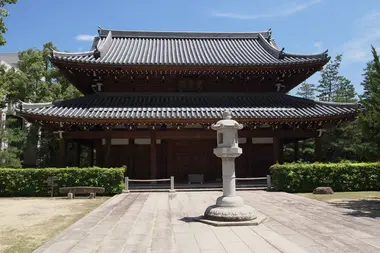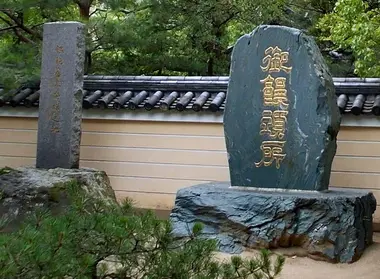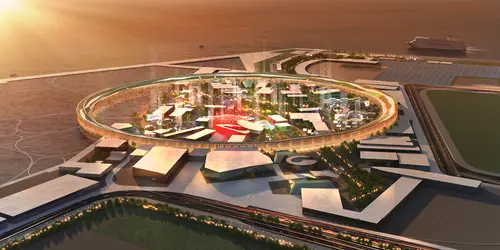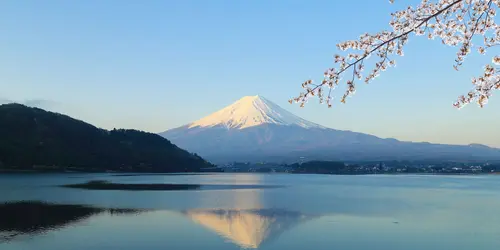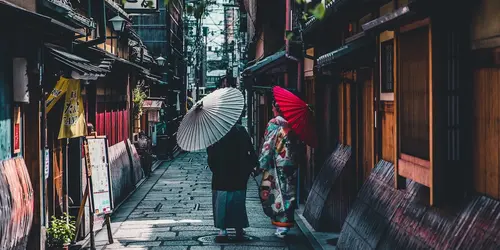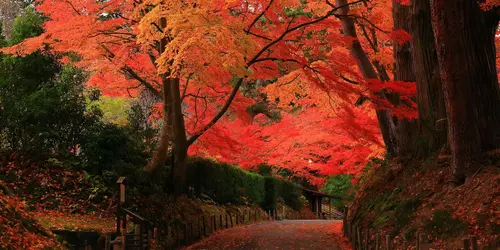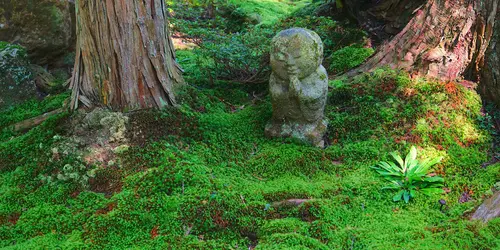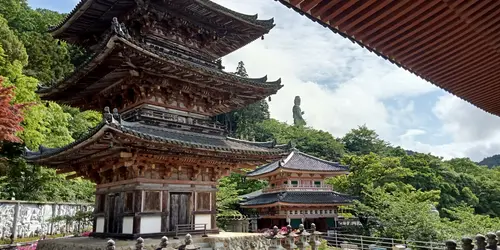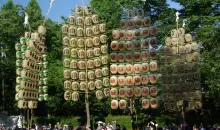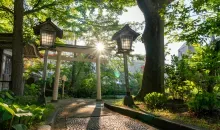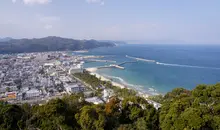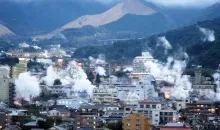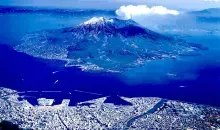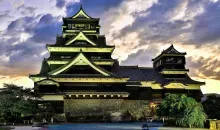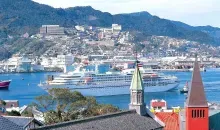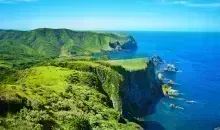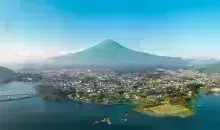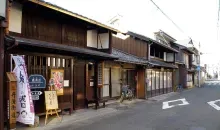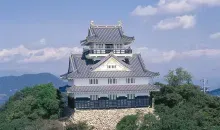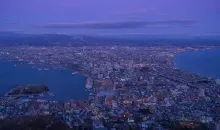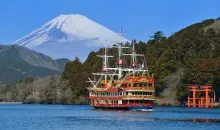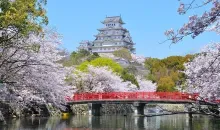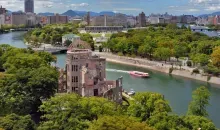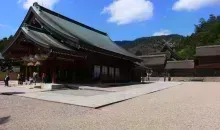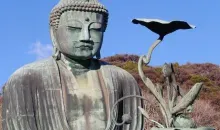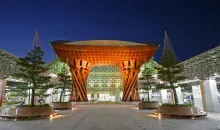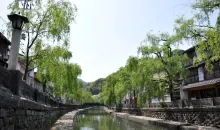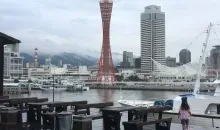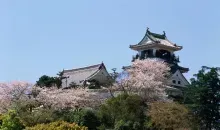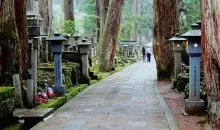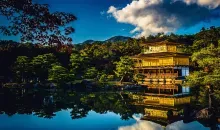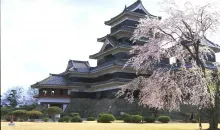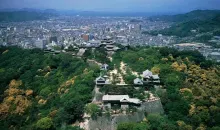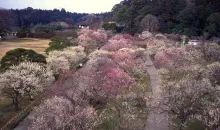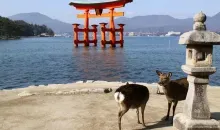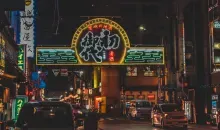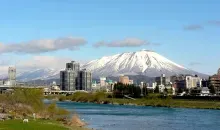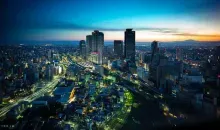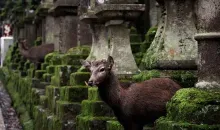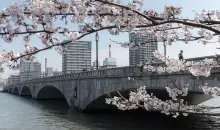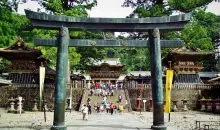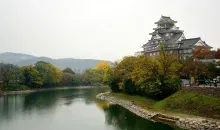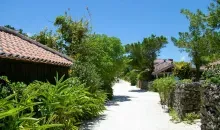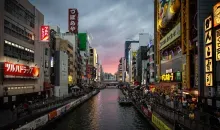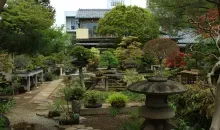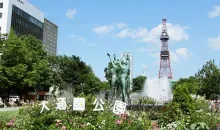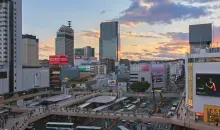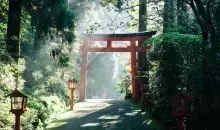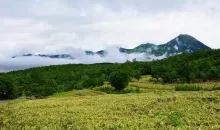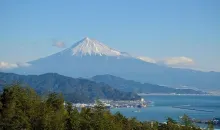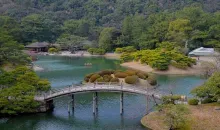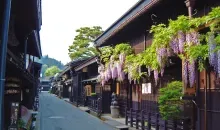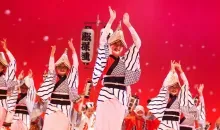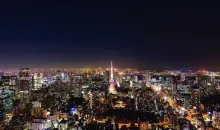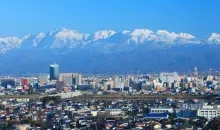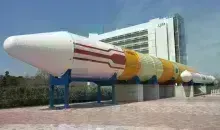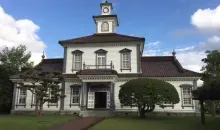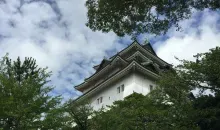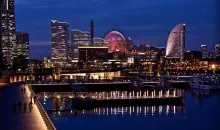Discover Fukuoka
- Published on : 03/10/2024
- by : G.L. / J.R.
- Youtube
Local Time 12:10
Symbol : sunny_cloudy
Temp : 31°C
Date : Today
Symbol : sunny_cloudy
Temp : 31.1°C
Date : Tomorrow
Symbol : sunny
Temp : 31.7°C
Date : Sunday
Symbol : sunny
Temp : 31.4°C
Date : Monday
Local Time 12:10
Symbol : sunny_cloudy
Temp : 31°C
Date : Today
Symbol : sunny_cloudy
Temp : 31.1°C
Date : Tomorrow
Symbol : sunny
Temp : 31.7°C
Date : Sunday
Symbol : sunny
Temp : 31.4°C
Date : Monday
Fukuoka, the capital of the south
Fukuoka, the largest city on the island of Kyushu, offers a unique experience combining tradition and modernity. Located on the island's northern coast, this dynamic city of over 1.5 million inhabitants has forged its identity through centuries of trade with its Asian neighbors. A historic gateway for foreign influences in Japan, it was via Fukuoka that the Chinese writing system and Buddhism passed through in the 4th century. Today, this vibrant, sunny city with its mild climate offers an authentic immersion in contemporary Japan, with its rich cultural heritage, lively neighborhoods and renowned gastronomy.
Must-sees in downtown Fukuoka
At the heart of Fukuoka lies the Hakata district, a veritable conservatory of local traditions. Once a separate market town, Hakata merged with the lordly city of Fukuoka in 1889, but has remained the city's nerve center.
Hakata station is now the city'scentral point and a major transport hub to the rest of Kyushu. To understand local history and traditions, don't miss the Hakata Machiya Folk Museum, where handicrafts, the Hakata Gion festival and even local slang are explained.
Also explore Tenjin, the business center that also houses shrines and a major shopping area. Nearby, the trendy Daimyo district attracts a younger clientele with its designer boutiques and trendy cafés. For those interested in the traditional, the Gion district boasts a number of historical treasures. Sea lovers can head for Momochihama, home to both the Fukuoka Tower and a large beach, particularly popular in summer.
To discover the city at its best, check out Fukuoka's Top 10 by our Travel Angel, who will guide you to the must-see sites with insider recommendations.
The yatai culture: a unique gastronomic experience
Fukuoka is famous throughout Japan for its unique yatai culinary culture, the street food stalls that liven up the city's evenings. Primarily located in two areas - Tenjin and Nakasu Island - these small street restaurants seat around ten people and offer an incomparable convivial experience where locals and tourists rub shoulders over delicious dishes.
A city of merchants like Osaka, Fukuoka has a very strong culinary identity, best known for its râmen. The local specialty is hakata râmen (or tonkotsu râmen), prepared with a rich pork-bone broth that gives it a particularly tasty flavor. The best place to enjoy these delicious noodles is undoubtedly one of the many yatai lining the river in the Nakasu district. Take a seat on a stool in front of these little shops and let yourself be carried away by the cheerful atmosphere!
Green spaces and historical sites
Fukuoka is known for its many green spaces, offering a welcome respite from the hustle and bustle of the city. Ohori Park, the lungs of the city, is built around a large lake and offers a popular 2 km walk. Don't miss its traditional Japanese garden in the southern part, a particularly enchanting haven of peace. Boating and pedal-boating enthusiasts will enjoy the lake, while families will appreciate the playgrounds.
Nearby is Maizuru Park, home to the remains of Fukuoka Castle. Although only the ramparts and a few buildings of the ancient feudal fortress remain, the site offers an exceptional 360-degree panoramic view of the city, ideal for admiring the sunset. The park is also one of the best places to watch cherry and plum trees in bloom, depending on the season.
For a more intimate experience, the Yusentei garden will charm you with its small lake, elegant teahouse and peaceful ambience. Slightly off-center, this jewel is considered Fukuoka's most beautiful Japanese garden and is particularly splendid in autumn.
On the historical front, don't miss Kushida Shrine, symbol of the city and home of the Hakata Gion Yamakasa festival, Tocho-ji Temple with its large wooden Buddha statue and five-storey pagoda, and Shofuku-ji, Japan's first Zen temple founded in 1195.
Modern shopping districts
Fukuoka is renowned for its dynamic, cutting-edge shopping districts. The Canal City shopping complex, with its neo-futuristic architecture and small canal running through the first floor, is a must-see. This "city within a city" is packed with stores, restaurants, cinemas and entertainment venues. The Ramen Stadium, dedicated to the famous local noodles, attracts many gourmets.
The Tenjin district is Fukuoka's main commercial center, with department stores lining the main thoroughfares and underground shopping malls. Right next door, the trendy Daimyo district is a labyrinth of small streets where young locals stroll at weekends, between designer boutiques, thrift shops and trendy cafés.
For those looking for traditional souvenirs, the Kawabata Shôtengai shopping arcade, a stone's throw from the Kushida Shrine, offers a more authentic experience. In this covered shopping street, you'll find typical handicrafts such as tea, kimonos and Japanese paper goods.
And don't miss the Nakasu district, particularly lively at night with its many restaurants, bars and clubs. The 234-metre-high Fukuoka Tower offers an impressive panoramic view of the city and bay. Finally, the ACROS building, with its impressive green facade and terraced garden, is a perfect example of urban ecological architecture.
Nanzoin and its giant Buddha: a spiritual excursion
Just 30 minutes by train from Fukuoka lies one of Japan's most impressive spiritual sites: the Nanzoin temple in Sasaguri. This vast complex of temples and shrines is famous for housing the world's largest bronze reclining Buddha statue. This colossal work, completed in 1995, measures 41 metres long, 11 metres high and weighs no less than 300 tonnes.
The history of this statue is fascinating: it was built to house the ashes of Buddha and two of his disciples, donated to the temple by Myanmar and Nepal in gratitude for the medical aid given to children in those countries. The sheer size of the statue is truly striking when you stand at its feet, whose plants are magnificently decorated with golden motifs.
Beyond the great Buddha, the Nanzoin estate is divided into several areas worth exploring. Here you'll find an impressive statue of Fudô Myôô (Acala), a wrathful deity associated with fire, surrounded by 500 statues of disciples, all different. The site also includes numerous small temples, shrines and statues scattered around the hillside, creating an enchanting spiritual journey amidst the greenery.
This temple is the starting point for the 88-temple Sasaguri pilgrimage, a more compact version of the famous Shikoku pilgrimage. Entrance to the site is free, although there is a charge of 500 yen to visit the interior of the Buddha. Allow at least 2 hours to properly explore this unique complex, which offers a profound spiritual experience in an unspoilt natural setting.
Explore the surrounding area: Karatsu, Dazaifu and the Itoshima coast
The region around Fukuoka is full of fascinating destinations easily accessible for day trips. Dazaifu, Kyushu's former administrative capital for five centuries, is a historical and cultural Mecca. Here you'll discover the Dazaifu Tenmangu Shrine, dedicated to the god of learning, surrounded by 6,000 plum trees that offer a magnificent sight in late winter. The Kyushu National Museum, with its art and history collections, is also well worth a visit.
TheItoshima peninsula, west of Fukuoka, is a popular destination for its spectacular coastal scenery. With its white sandy beaches, turquoise waters and picturesque rock formations such as the floating torii of Futamigaura, this region offers an idyllic setting for nature lovers. In winter, don't miss the kaki-gôya, the straw huts where you can enjoy grilled oysters by the sea. The Shiraito waterfall and numerous cafés with their rustic charm complete the appeal of this region.
Karatsu, a small coastal town with a picturesque castle overlooking the sea, will seduce you with its peaceful atmosphere and rich history. The castle, though rebuilt, offers a breathtaking view of the bay. The town is also renowned for its traditional Karatsu-yaki pottery and its giant float festival in November.
Other interesting destinations include Yanagawa, nicknamed the "Venice of Kyushu" with its navigable canals, and the island of Ainoshima, known as "Cat Island". For lovers of spirituality, the Nyorin-ji frog temple (Kaeru-dera) offers an unusual experience, with its thousands of representations of batrachians.
Practical information: transport, accommodation and budget
Fukuoka benefits from excellent accessibility and an efficient transportation network. Fukuoka airport is remarkably close to the city center, just 5 minutes by subway from the domestic terminal. If you're coming from Tokyo, the Tokaido-Sanyo shinkansen connects Tokyo station with Hakata station in around 5 hours. From Osaka, the Sanyo shinkansen takes around 2.5 hours, and from Hiroshima only 1.10 hours. Order your train tickets to Fukoaka in advance for best availability.
To get around Fukuoka, the metro is the most convenient way, with three lines: the Kuko line (orange), the Hakozaki line (blue) and the Nanakuma line (green). Ticket prices vary from 210 to 380 yen, depending on distance. Daily or two-day passes are available for 640 or 740 yen. A dense network of buses completes the public transport offer. To explore Kyushu's surroundings in complete freedom, don't hesitate to rent a car.
As for accommodation, Fukuoka offers a wide range of options. To optimize your stay, choose the Hakata district, between the station and the Naka River, or the Tenjin area. These central areas give you easy access to the main attractions and nightlife without having to worry about transport. Hotel budgets are generally more affordable than in Tokyo or Kyoto, with options ranging from budget capsule hotels to luxury hotels.
On the budget side, Fukuoka is renowned for its excellent, affordable food. A bowl of râmen can cost as little as 280 yen in some establishments, and yatai offer tasty dishes at reasonable prices. Be sure to check prices before ordering, especially in yatai where prices are not displayed. The city thus offers excellent value for money for travelers, making it an attractive destination for discovering Japanese culture without breaking the bank.
Discover Fukuoka
Our tours in Discover Fukuoka
Interested by Discover Fukuoka
Discover other cities to explore
